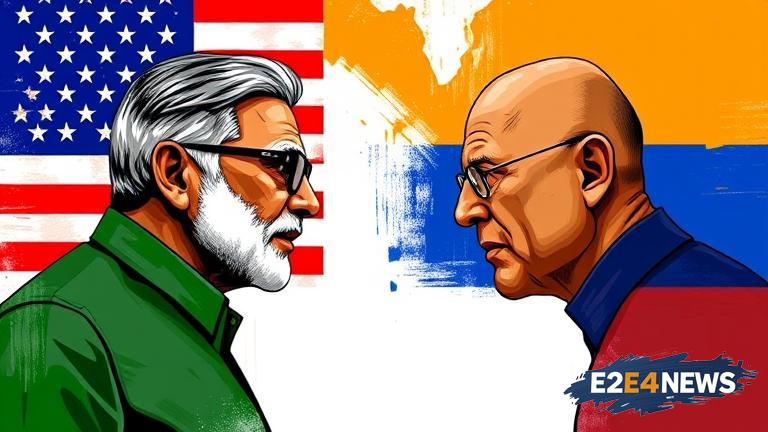India has strongly condemned the US and EU for their double standards on oil trade with Russia. The Indian government has stated that the Western countries’ stance on the issue is unjustified and unreasonable. The criticism comes as the US and EU have imposed sanctions on Russia over its invasion of Ukraine, but have continued to import oil from the country. India, on the other hand, has maintained its neutral stance on the issue and has continued to import oil from Russia. The Indian government has argued that the US and EU’s actions are hypocritical, as they are imposing sanctions on Russia while still benefiting from its oil exports. The government has also stated that the sanctions are having a negative impact on the global economy, particularly on developing countries. India has been one of the largest buyers of Russian oil, and has maintained its imports despite the sanctions. The country has also been exploring alternative sources of oil, including from the US and other countries. However, the Indian government has stated that it will not be dictated to by the US and EU, and will continue to make its own decisions on oil imports. The US and EU have been critical of India’s stance on the issue, with some officials stating that the country is not doing enough to support the sanctions. However, the Indian government has maintained that it is committed to its own national interests, and will not be swayed by external pressure. The issue has also sparked a debate in India, with some experts arguing that the country should reduce its dependence on Russian oil, while others argue that the imports are necessary for the country’s energy security. The Indian government has also stated that it is committed to reducing its carbon footprint, and is exploring alternative sources of energy, including renewable energy. Despite the criticism from the US and EU, India has maintained its relations with Russia, and has continued to engage in diplomatic efforts to resolve the issue. The country has also been working with other countries, including China and Iran, to explore alternative sources of oil and to reduce its dependence on Western countries. The issue has also highlighted the complexities of global geopolitics, with multiple countries having different interests and priorities. The Indian government has stated that it will continue to navigate these complexities, and will prioritize its own national interests. The country has also been working to strengthen its relations with other countries, including those in the Middle East and Africa, to reduce its dependence on Western countries. The issue has also sparked a debate on the role of sanctions in international relations, with some experts arguing that they are an effective tool for promoting change, while others argue that they can have unintended consequences. The Indian government has stated that it is committed to finding a peaceful resolution to the issue, and will continue to engage in diplomatic efforts to achieve this goal. The country has also been working to promote its own economic interests, including through the development of its own oil and gas sector. The issue has also highlighted the importance of energy security, with countries around the world seeking to reduce their dependence on imported oil and to promote their own energy independence. The Indian government has stated that it is committed to achieving energy independence, and will continue to work towards this goal through the development of its own oil and gas sector, as well as through the promotion of renewable energy.
